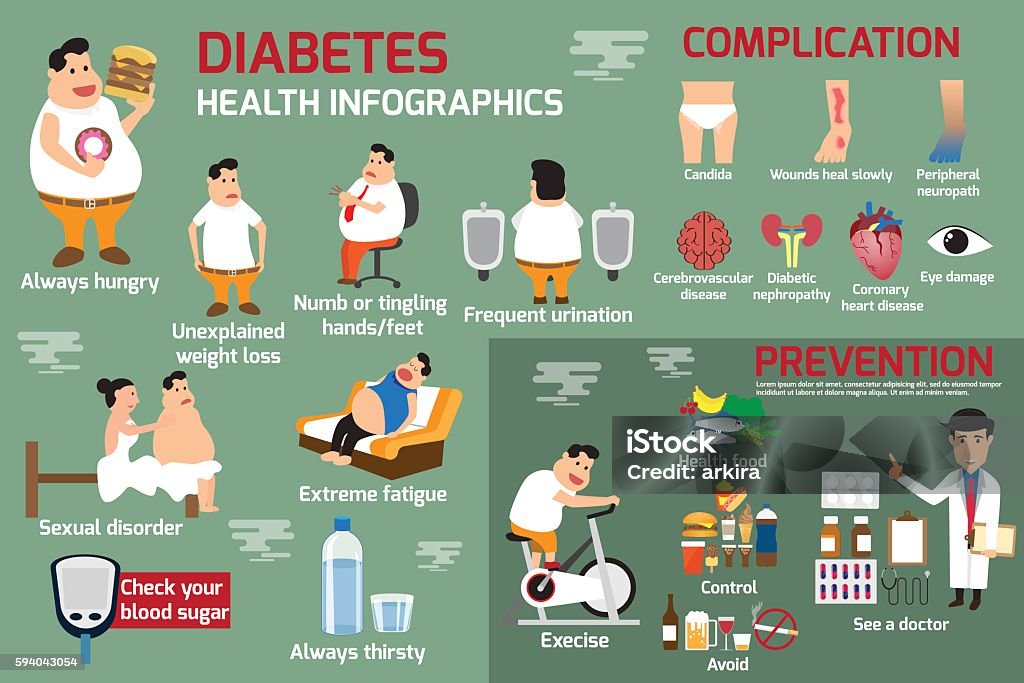Introduction
Millions of people worldwide suffer from obesity, which has turned into a global health emergency. It is a contributing factor to a number of chronic illnesses, including diabetes, heart disease, and several types of cancer. Despite numerous contributing factors such as genetics, environment, and lifestyle, regular changes in behavior can frequently prevent and control obesity. This article explores efficient methods for managing and avoiding obesity, including helpful guidance on nutrition, physical activity, mental health, and other topics.
What is Obesity
A large amount of bodily fat that can harm one’s health is called obesity. The Body Mass Index (BMI), which is a ratio of an individual’s weight to height, is commonly used to measure it. Obese people have a BMI of 30 or above. The risk of many illnesses, including heart disease, type 2 diabetes, high blood pressure, and sleep apnea, is greatly increased by obesity.
The obesity epidemic is primarily driven by the following factors:
- Poor Diet: High-calorie, low-nutrient foods contribute to excessive weight gain.
- Genetics: Genetic factors can make some people more predisposed to obesity
- Sedentary Lifestyle: energy imbalance occurs when physical inactivity causes more calories to be consumed than burnt.
- Environmental Factors: Easy access to unhealthy food options and limited spaces for physical activity exacerbate the problem.
Identifying the Fundamental Reasons for Obesity
Before talking about ways to prevent and manage obesity, it’s critical to understand the several factors that contribute to this condition:
- Genetic Factors: Genetics can affect how your body breaks down meals and accumulates fat. Although genetics is not the only factor, people who have a family history of obesity are more vulnerable.
- Unhealthy Diet: High consumption of sugary drinks, fast food, processed snacks, and large portions of high-fat foods contribute to weight gain. Diets high in sugar and refined carbohydrates can disrupt metabolism and lead to fat storage.
- Physical Inactivity: Sedentary behavior, such as spending too much time sitting or engaging in minimal physical activity, prevents the body from burning calories efficiently.
- Emotional and Psychological Factors: Stress, depression, and anxiety can lead to overeating, especially comfort food, which is often high in fat and sugar.
- Environmental and Societal Factors: Urban environments may lack safe spaces for exercise, and advertisements for unhealthy foods can encourage poor eating habits.
Strategies for Controlling Obesity
Now that we know the causes, let’s look at practical ways to reduce obesity.
Adopt a Nutritious, Balanced Diet
A balanced diet that gives you the nutrition your body needs without being overly calorie-dense is the key to managing obesity. Among the fundamentals of a nutritious diet are:
- Portion Control: Eating in moderation is essential. Overeating, even healthy foods, can lead to weight gain.
- Increase Fiber Intake: Fiber-rich foods such as fruits, vegetables, whole grains, and legumes help control hunger and regulate blood sugar levels.
- Limit your intake of processed foods: Processed and sugary foods often contain unhealthy fats, high sodium, and artificial ingredients. These foods provide little nutritional value and can contribute to weight gain.
- Healthy Fats: Incorporate healthy fats such as those found in avocados, nuts, seeds, and olive oil, while avoiding trans fats and excessive saturated fats.
- Protein-Rich Foods: Lean protein sources such as chicken, fish, legumes, and plant-based proteins can help reduce hunger and maintain muscle mass while losing weight.
- Stay Hydrated: Drinking water is crucial for metabolism and digestion. Avoid sugary drinks like sodas or sugary coffee drinks.
Include Frequent Exercise
Being active is essential for controlling weight. Exercise increases muscular mass, boosts metabolism, and burns calories. In addition to strength training twice a week, try to get in at least 150 minutes of moderate aerobic activity or 75 minutes of difficult aerobic activity per week.
Exercises that work well include:
- Cardiovascular Exercise: Activities such as walking, jogging, cycling, swimming, or dancing can help burn calories and improve heart health.
- Strength Training: Lifting weights or using resistance bands builds muscle mass, which in turn increases your resting metabolic rate, helping you burn more calories at rest.
- Elevated Interval Training:This involves short bursts of intense activity followed by periods of rest. HIIT is highly effective for burning fat and improving cardiovascular fitness
Finding a sustainable and pleasurable fitness regimen is crucial. Selecting long-term hobbies is important since consistency is crucial.
Psychological and Behavioral Therapies
The psychological factors that may lead to overeating or unhealthy food choices must frequently be addressed in order to reduce obesity. A healthier relationship with food and a shift in eating patterns can be achieved through behavioral changes. Here are a few methods:
- Mindful Eating: Paying attention to what and how much you eat can help prevent overeating. Eating slowly and savoring each bite can help you feel satisfied with smaller portions.
- Cognitive Behavioral Therapy (CBT): CBT can help address emotional eating and develop healthier coping mechanisms for stress, anxiety, and depression.
- Counseling or Support Groups: Consulting a therapist or participating in a support group can offer techniques for controlling emotional eating triggers, motivation, and accountability.
Make Time for Sleep
Lack of sleep can disrupt your metabolism and increase hunger hormones like ghrelin, leading to overeating. Aim for 7 to 9 hours of sleep per night to maintain a healthy weight. Improving sleep hygiene, such as sticking to a consistent bedtime, avoiding caffeine late in the day, and creating a calming bedtime routine, can promote better sleep quality.
Effectively Handle Stress
Weight gain and emotional eating can result from ongoing stress. Cortisol, a hormone that encourages fat storage, particularly in the abdominal region, is elevated in response to stress. Take into account stress-reduction techniques such as:
- Yoga or Meditation: These activities can help reduce stress levels and promote relaxation.
- Deep Breathing Exercises: Simple breathing exercises can help reduce anxiety and stress, making it easier to resist emotional eating.
- Hobbies and Socializing: Engaging in hobbies, spending time with loved ones, or participating in community activities can improve emotional well-being and reduce stress.
Establish a Support Network
Having a solid support system will greatly increase your chances of weight management success. Support, whether from friends, family, a medical professional, or an online community, is essential for inspiration, responsibility, and encouragement. You can stay on course with frequent check-ins, group activities, and common objectives.
Strategies for Long-Term Obesity Prevention
Preventing obesity in the first place is even more important than controlling it. The following are some methods to avoid obesity:
Develop Healthful Routines from a Young Age
Childhood is the first stage of prevention. The chance of developing obesity later in life can be decreased by promoting good eating practices, exercise, and enough sleep from an early age. A child’s attitude toward eating and exercise is greatly influenced by their parents and other caregivers.
Encourage Environments That Are Healthier
Access to parks, recreational facilities, fresh fruit, and safe walking routes are all ways that communities may support healthy surroundings. By restricting the availability of unhealthy food outlets and encouraging education on healthy lifestyles, local governments may play a big part.
Education and Awareness
Preventing the issue requires raising public knowledge of the dangers of obesity and the advantages of leading a healthy lifestyle. The media, healthcare professionals, and educational institutions may all help people understand the value of maintaining a healthy weight and way of life.
Conclusion
Being obese is a severe health problem that needs to be addressed and managed proactively. But with the correct information and commitment, obesity may be managed and even prevented by combining a good diet, consistent exercise, mental health, and support networks. Perseverance, consistency, and long-term lifestyle adjustments are crucial. In addition to controlling obesity, people can live healthier, happier lives by following a balanced diet, exercising frequently, controlling their stress, and getting the right medical advice.
What is obesity?
Obesity is a medical condition characterized by an excessive amount of body fat. It is typically measured by Body Mass Index (BMI), where a BMI of 30 or higher is classified as obese. Obesity increases the risk of several health issues such as heart disease, diabetes, and certain types of cancer.
What causes obesity?
A mix of behavioral, environmental, and hereditary variables contribute to obesity. Among the most frequent reasons are:
Poor diet: Eating processed snacks, sugary drinks, and fast food that are heavy in calories but lacking in nutrients.
Absence of physical activity: Weight gain is a result of a sedentary lifestyle with little exercise.
Genetic factors: Body weight and patterns of fat storage can be influenced by family history.
Psychological factors: Emotional eating, stress, and sadness can all contribute to overeating.
Environmental factors: Lack of room for physical activity and easy availability to bad meals can raise the risk of obesity.
How can obesity be controlled?
Controlling obesity can be accomplished by:
consuming a healthy, well-balanced diet that limits processed foods and sweets and has an emphasis on whole foods, fiber, and healthy fats.
Frequent exercise, such as weight training and cardiovascular activities like walking and cycling, can boost metabolism and burn calories.
Modifications in behavior include controlling emotional eating, practicing mindful eating, and getting help from a psychologist when necessary.
To control hunger hormones and avoid overeating, get adequate sleep.
Stress reduction using yoga, meditation, or counseling can lessen emotional eating triggers.
medical procedures (if required), such as bariatric surgery or weight-loss drugs.
How does sleep affect the prevention or management of obesity?
Sleep and weight control are tightly related. Sleep deprivation throws off the balance of chemicals linked to hunger, including leptin, which makes you feel full, and ghrelin, which makes you feel hungry. Lack of sleep can cause overeating and unhealthy food desires. In order to assist weight management and help regulate these hormones, adults should strive for 7-9 hours of sleep each night.
Can medicines be used to treat obesity?
Medication may be used to treat obesity in certain situations, although it is normally only advised for those who have severe health problems brought on by their obesity and have not been able to reduce their weight with diet and exercise alone. A doctor may prescribe drugs like liraglutide, which helps regulate appetite, orlistat, which prevents the absorption of fat. Before beginning any weight-loss drug, always get medical advice.

